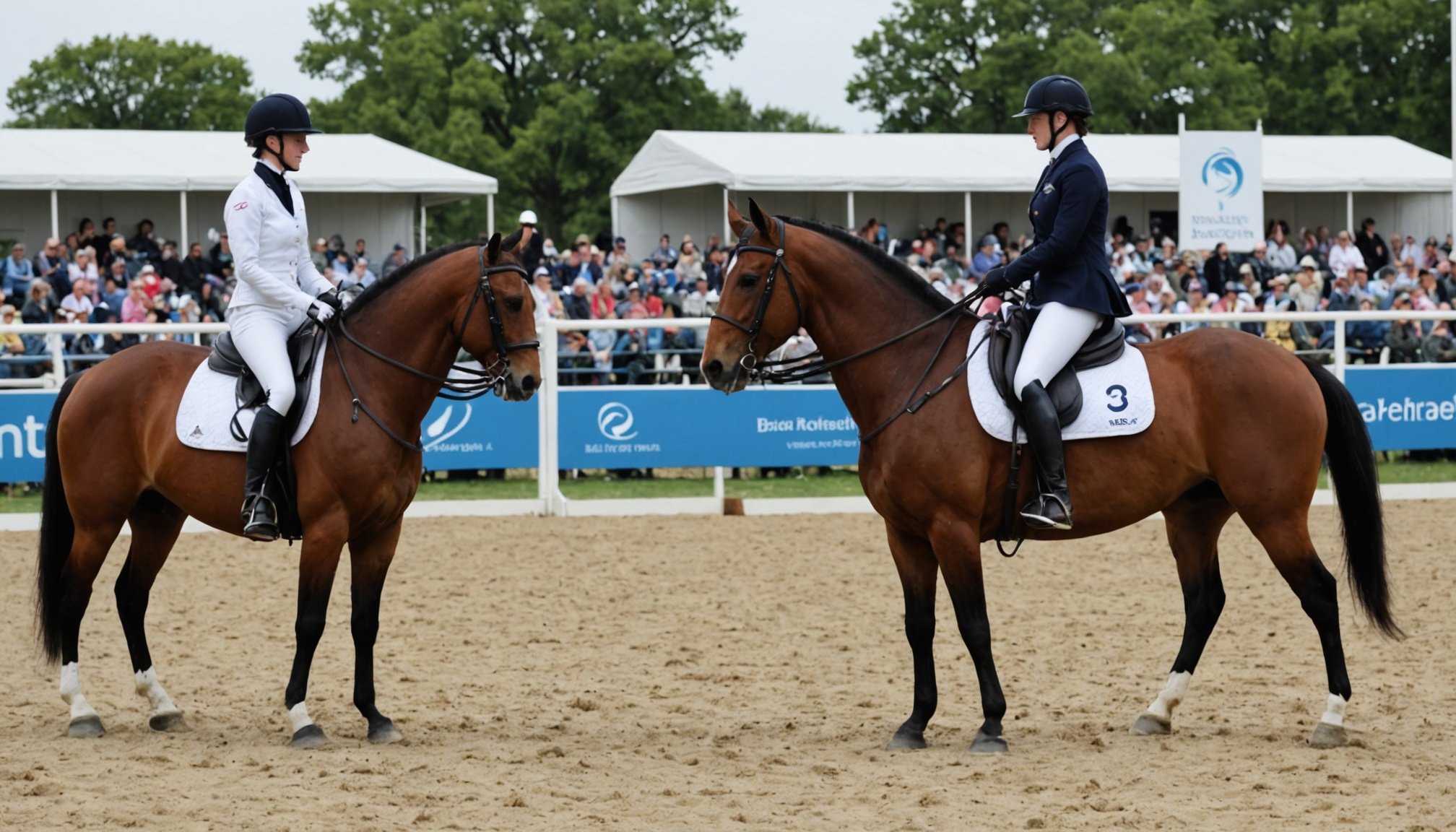Overview of Psychological Debriefing
Psychological debriefing is a structured process aimed at enhancing mental well-being, particularly in high-pressure environments like equestrian sports. Its primary purpose is to help individuals process events, thereby reducing stress and preventing long-term psychological difficulties. Within equestrian sports, this method is crucial due to the intense physical demands and mental pressure riders and their teams face.
For equestrian athletes, trainers, and support staff, psychological debriefing provides an opportunity to reflect on experiences, manage emotional responses, and improve future performance. This practice is not limited to the riders alone; it extends to everyone involved in the preparation and execution of equestrian events, signifying its importance in fostering collective understanding and improving team dynamics.
Also to see : Designing dynamic strength and conditioning programs for adaptive wheelchair basketball athletes
Engaging in regular debriefing sessions can lead to numerous benefits, such as enhanced performance, increased self-awareness, and reduced anxiety. Studies suggest that regular debriefs can help athletes better understand their emotional responses during and after competitions, ultimately contributing to improved decision-making and performance outcomes. Additionally, debriefing assists in building resilience, enabling athletes to handle adverse situations with greater confidence.
Essential Strategies for Effective Debriefing
Implementing effective debriefing techniques requires a clear step-by-step framework. This process helps athletes and support staff manage post-event anxiety and stress. Debriefing sessions should begin with a structured assessment of the event, encouraging participants to express their thoughts and emotions candidly. Understanding the event’s emotional impact is crucial for successful emotional processing.
Have you seen this : Elevate your combat sports game: harnessing neurocognitive training to enhance reflexes
Begin with a welcoming environment where all members feel comfortable sharing. Encourage openness to foster trust and honest dialogue. Delve into specific emotions and experiences, focusing on identifying triggers that could have influenced performance.
Using coping strategies can further aid in addressing anxiety management. Techniques like deep breathing, visualisation, and mindfulness exercises are effective in alleviating stress. These strategies enable individuals to regain focus and prepare for upcoming challenges.
The role of emotional processing is significant in recovery. It helps transform potentially negative emotions into proactive solutions, enhancing resilience. Athletes who engage in regular debriefing sessions often display improved adaptability and problem-solving skills.
By following this framework, the collective insight gained provides valuable lessons. It helps individuals and teams refine their approaches, ultimately leading to better performance and psychological well-being.
Case Studies and Real-Life Examples
Incorporating psychological debriefing practices into equestrian events has yielded insightful lessons and best practices. A prominent high-pressure Show Jumping Event featured a comprehensive debriefing approach. Participants assessed emotional reactions by revisiting performance highlights and challenges. This evaluation facilitated open discussions, allowing riders to pinpoint stressors linked to competition pressures and horse coordination.
During a Dressage Competition Debrief, the emphasis was on analysing intricate routines and precision tasks. Riders reflected on their emotional responses to highly focused performances, maintaining composure under judging scrutiny. Highlighted strategies included fostering a strong mental focus and practising mindfulness, which were crucial in enhancing overall performance.
A Team Eventing Analysis unfolded unique dynamics of team collaboration. Post-event debriefings focused on shared objectives and analysed individual as well as collective contributions. The analysis advanced mutual understanding, cultivating robust team synergy. Collaborative evaluations uncovered performance enhancements and pinpointed areas for constructive changes, helping to tailor debriefing techniques to distinct equestrian disciplines.
These case studies emphasise adapting psychological debriefings to the specific requirements of each equestrian discipline. Successful debriefing practices highlighted here nurture not only performance but also fortify the mental resilience of athletes and their support teams.
Managing Anxiety and Stress in Equestrian Sports
In the demanding world of equestrian sports, stress management is crucial for athletes and their support staff. Identifying anxiety triggers specific to equestrian events is the first step in addressing mental challenges. Common triggers include competition pressures, performance expectations, and concerns about horse coordination.
Effective coping strategies can mitigate these stressors, enhancing both mental resilience and performance. Techniques such as deep breathing exercises, visualisation, and mindfulness practices are invaluable for athletes confronting high-pressure situations. These methods not only help in stress reduction but also improve focus and concentration during events.
Mental skills training is pivotal in preparing for competitions, equipping equestrian professionals with tools to handle stress efficiently. Regular mental skills sessions can refine an athlete’s ability to manage emotions and maintain composure under pressure. This is particularly important given the unique challenges of riding, where maintaining a strong connection with the horse is essential.
In conclusion, incorporating targeted stress management strategies within training routines is vital. By developing individualised coping mechanisms, equestrian athletes and their support teams can foster a healthier, more supportive environment, optimising both performance and well-being.
Challenges in Conducting Psychological Debriefs
Conducting psychological debriefs in the equestrian community is not without its challenges. One primary obstacle is overcoming barriers to effective debriefing. The fast-paced nature of equestrian events often leaves little time for structured reflection, making it difficult for athletes and staff to integrate debriefing into their routines. Additionally, logistical issues such as scheduling conflicts between team members can hinder the process.
Another significant barrier is the stigma associated with mental health in sports. Many within the equestrian community may be reluctant to participate in debriefing sessions due to fears of being perceived as weak or unable to handle the pressures of competition. This stigma can prevent individuals from openly discussing their experiences and emotions, which are crucial for effective debriefing.
Promoting a culture of openness and support is essential for addressing these challenges. Encouraging dialogue about mental health and providing safe spaces for athletes and staff to express their thoughts can help break down the stigma. Education on the benefits of regular debriefing sessions can further support these efforts. By fostering an environment that values psychological well-being, the equestrian community can enhance both mental health and performance outcomes.
Actionable Steps for Implementation
To successfully integrate debriefing processes into the equestrian community, practitioners must embrace practical steps tailored for this niche. Initiating these practices starts with understanding the core best practices relevant to debriefings in high-pressure environments.
First, establish a consistent debriefing routine post-event. This routine should be well-structured to accommodate all participants, focusing on both individual and team experiences. Professionals should utilise available tools and resources, such as guided reflection worksheets and mental health apps, to facilitate effective sessions. These resources can improve communication and help dissect emotional responses systematically.
Implement training workshops designed to educate equestrian professionals on the benefits and techniques of psychological debriefings. These sessions should provide strategies on fostering dialogue around mental health, encouraging an environment that prioritises psychological resilience.
Finally, it’s essential to encourage ongoing discussions about mental well-being within the community. This can be achieved through regular forums, where mental health insights and experiences are shared, fostering a supportive network. By adopting these actionable steps, the equestrian community can nurture more resilient athletes, enhancing both performance and overall mental well-being.

